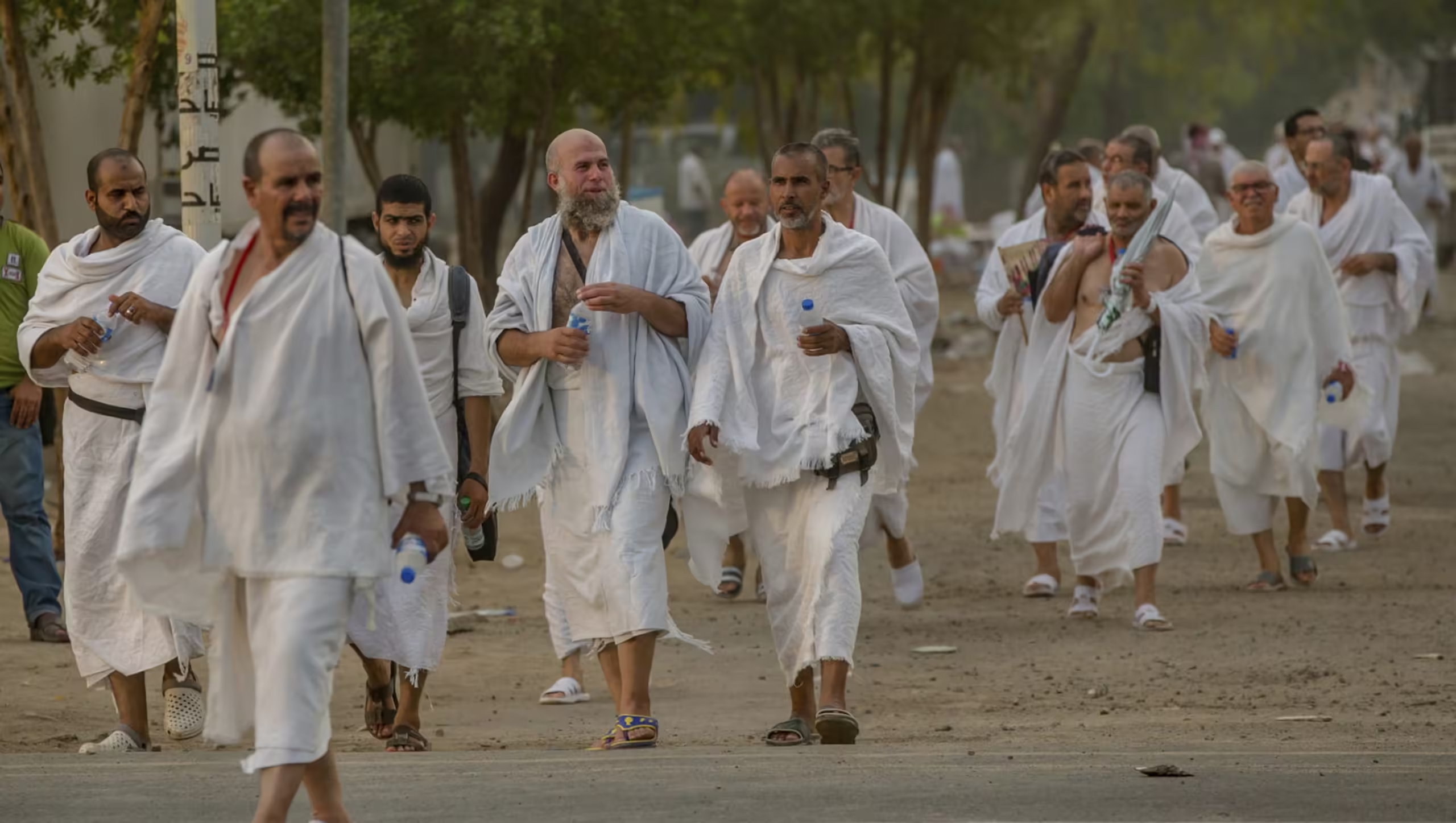
Photo: AP Photo/Dar Yasin
Pilgrims can resume normal activities after coming out from the state of Ihram.
During Hajj and Umrah, pilgrims enter the state of Ihram. After wearing the Ihram pilgrims must abstain from certain acts.
This easy-to-follow guide will explain the time and the steps for exiting the Ihram after Hajj or Umrah for men and women.
Taking off Ihram during Hajj, for both men and women, happens after stoning Jamrat Al-Aqabah and involves specific hair rituals.
Exiting the state of Ihram during Hajj is an important step for pilgrims. Here’s how it’s done:
For Umrah, the Ihram state ends for both genders after completing Tawaf and Sai. Men then either shave or cut their hair, while women cut a small portion of their hair.
This procedure has been confirmed by the Standing Committee for Academic Research and Issuing Fatwas.
After these steps, pilgrims can start doing everything that was forbidden while in Ihram, except for intercourse.
Full exit from Ihram happens after performing Tawaf Al-Ifadah and, if required, Sa`i. At this point, all previous restrictions, including intercourse, are lifted.
For Umrah, exiting Ihram involves completing Tawaf and Sa`i, followed by hair removal. Men should shave or cut their hair, while women only cut a small portion. Once these steps are done, all prohibitions will be lifted.
For those performing both Hajj and Umrah together (Qiran), the rules are the same as for those performing just Hajj (Ifrad) when exiting Ihram.
Note: This guidance is supported by prominent scholars including Shaykh `Abd Al-`Aziz ibn `Abdullah ibn Baz, Shaykh `Abd Ar-Razzaq `Afifi, Shaykh `Abdullah ibn Ghadyan, and Shaykh `Abdullah ibn Qa`ud.
May Allah grant us the strength to fulfill our religious duties correctly. Blessings and peace upon our Prophet Muhammad, his family, and his Companions.
This post was last modified on June 12, 2024 6:21 pm
Muharram is the first month in the Islamic calendar, which starts with sadness as it…
Islamic New Year starts with a sad month Muharram, which marks the martyrdom of Umar…
Updated Imam schedule for Grand Mosque and Prophet's Mosque.
Indian fast bowler Mohammed Siraj faces online trolling for thanking Allah after the T20 World…
The annual Ghusl Kabah ceremony is set to take place on the 15th of Muharram…
Saudi Arabia has again banned the entry of pilgrims wearing any clothes other than Ihram…